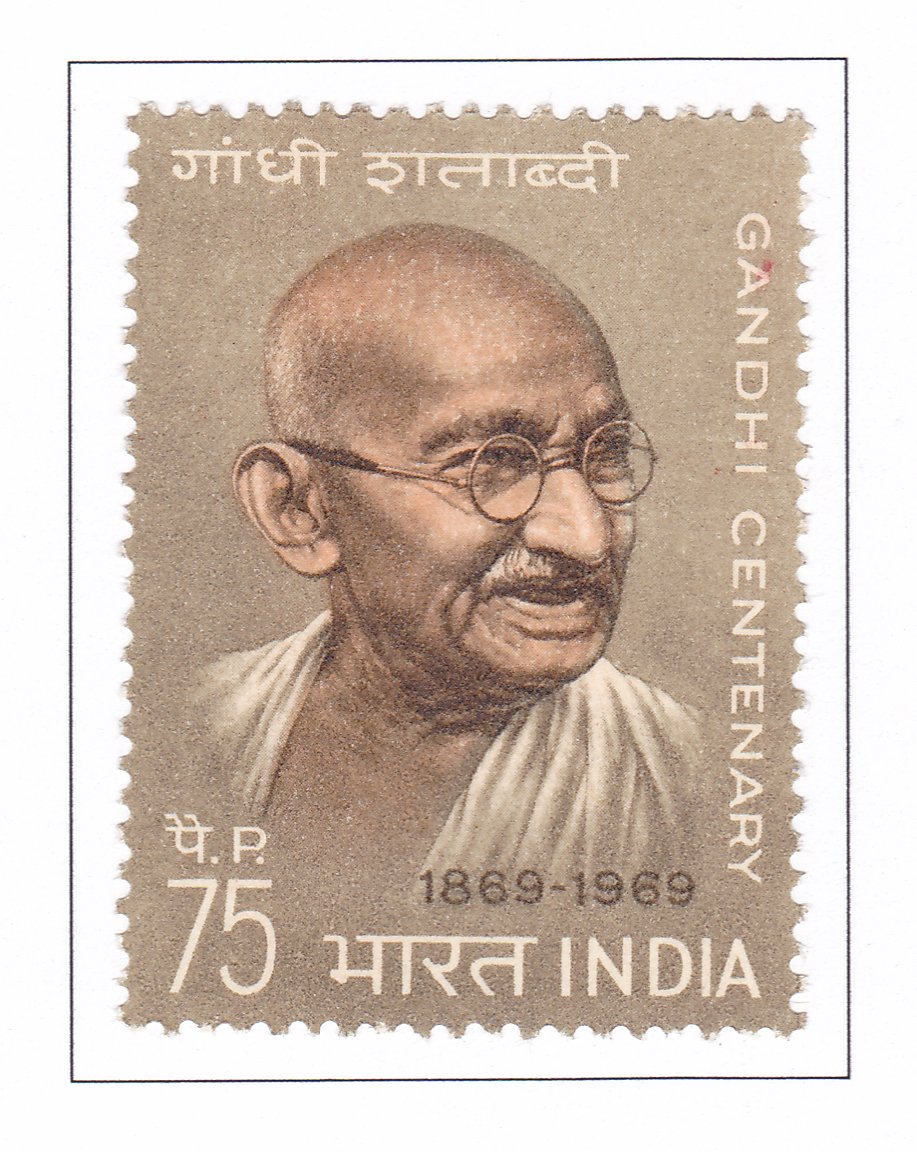Mahatma Gandhi Centenary 1869-1969

Technical Data
| Stamp Set | Mahatma Gandhi Memorial |
|---|---|
| Date of Issue | October 2, 1969 |
| Denomination | 75 nP |
| Quantity | 3,500,000 |
| Perforation | comb 13 |
| Printer | Security Printing Press, Nashik |
| Watermark | No Watermark |
| Colors | Red orange | Sepia |
| Catalog Codes |
Michel IN 482 Stamp Number IN 498 Yvert et Tellier IN 281 Stanley Gibbons IN 596 |
| Themes | Anniversaries and Jubilees | Famous people | Instruments | Lawyers-Advocates | Men | Optical Instruments | Philosophers |
Mahatma Gandhiji’s dream for India encapsulates a vision of social, economic, and spiritual equality. He envisions an India where every citizen, regardless of their social or economic status, feels a sense of ownership and empowerment in the nation-building process. In this dream India, there would be no class divides, and all communities would coexist in perfect harmony, free from social prejudices like untouchability.
Gandhiji also emphasizes the eradication of social vices such as substance abuse, recognizing them as obstacles to the nation’s progress. He advocates for gender equality, envisioning a society where women have the same rights and opportunities as men.
Furthermore, Gandhiji emphasizes the importance of peace and non-exploitation in international relations, advocating for a minimal military presence and respectful engagement with other nations. He stresses the need to prioritize the interests of the masses over conflicting interests, both foreign and domestic.
Culturally, Gandhiji envisions India as a melting pot of diverse cultures, where the richness of different traditions is celebrated and embraced. However, he also emphasizes the importance of maintaining one’s own identity and values amidst cultural exchange.
Spiritually, Gandhiji calls for progress and evolution, challenging the notion that humanity is inherently brutish. He believes in the capacity of individuals to transcend their base instincts and strive for higher moral and spiritual ideals.
Overall, Gandhiji’s dream for India is a deeply holistic vision, encompassing social justice, peace, harmony, cultural openness, and spiritual growth. It serves as a guiding light for individuals and society to aspire towards, urging them to strive for a better and more equitable future.
